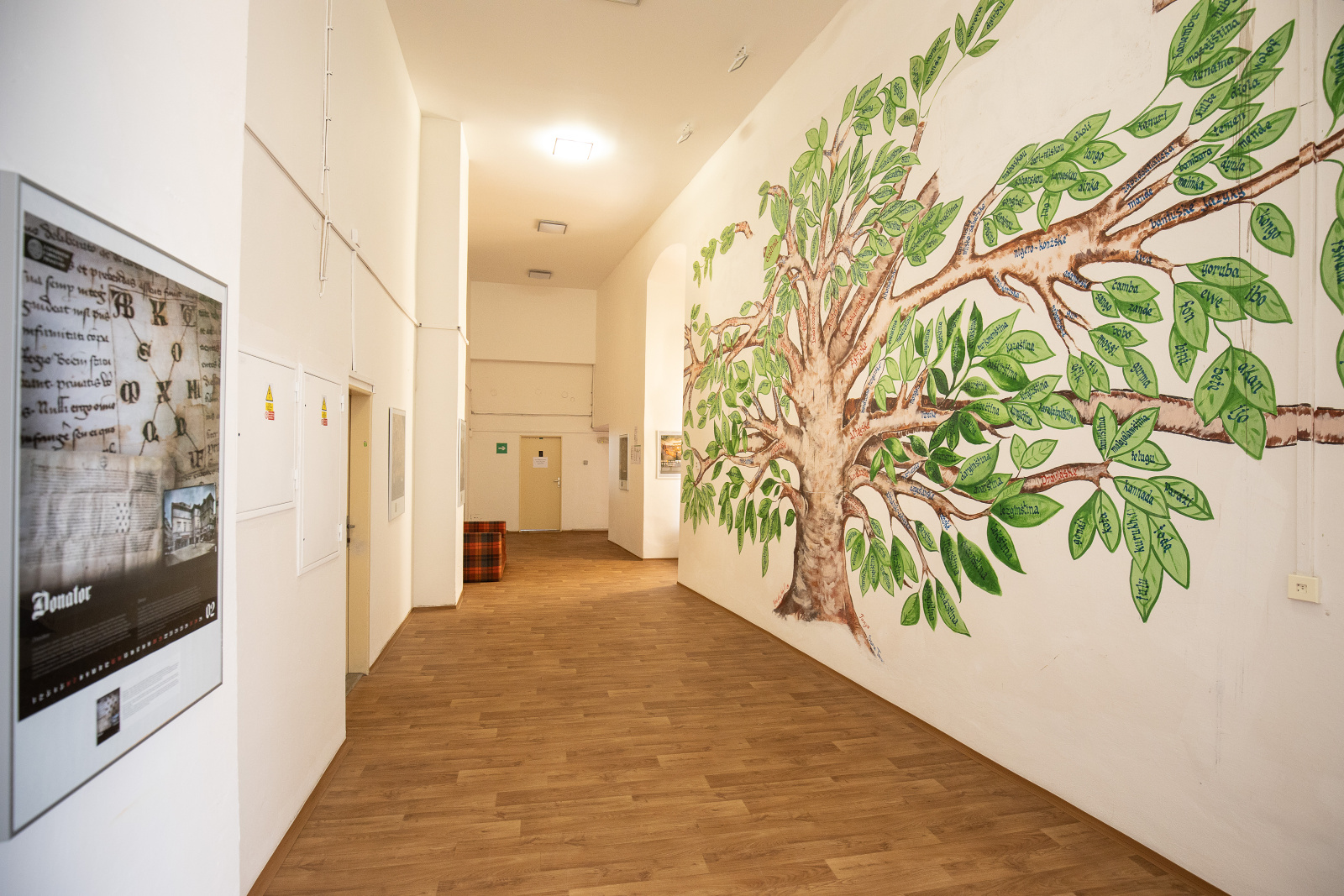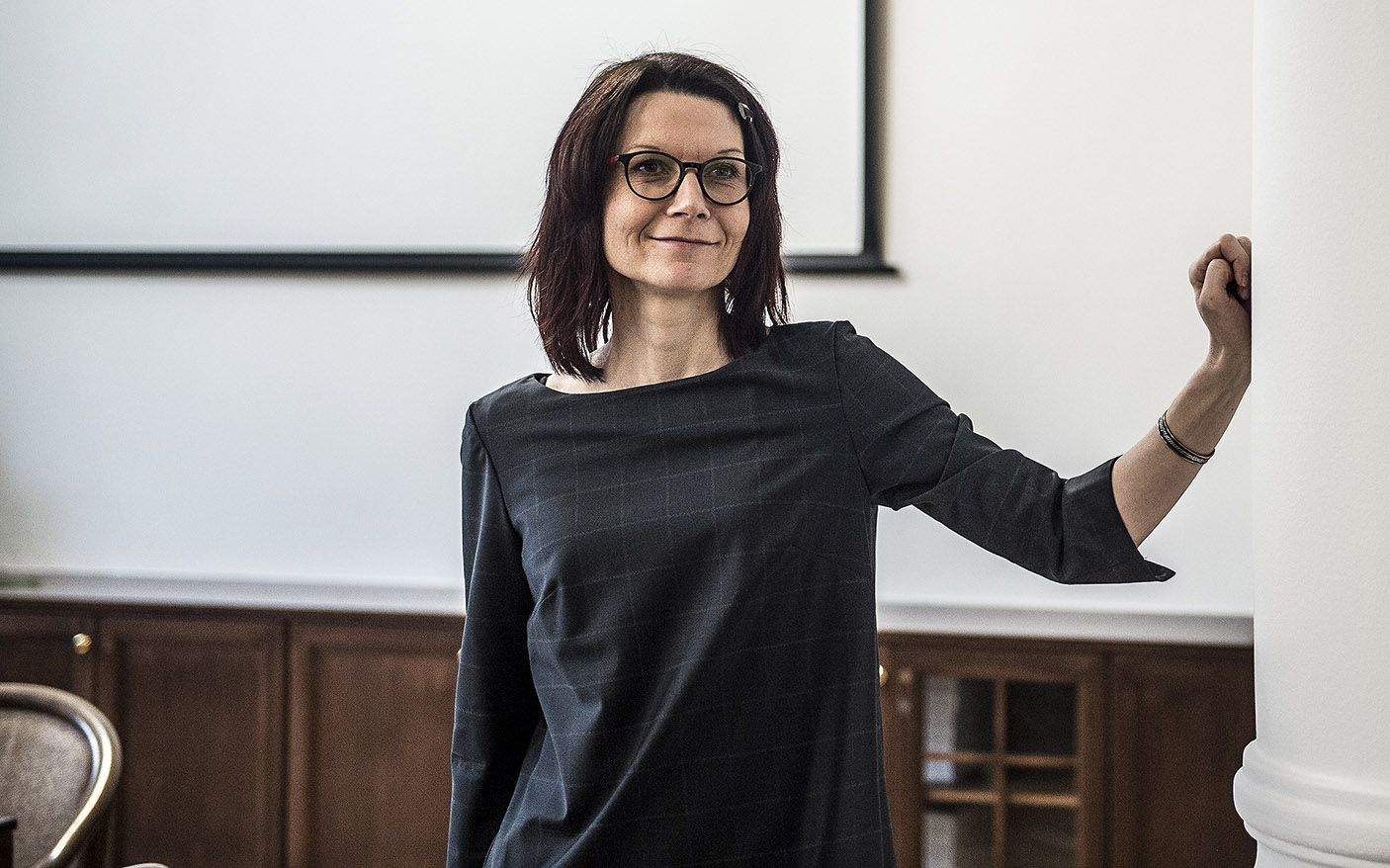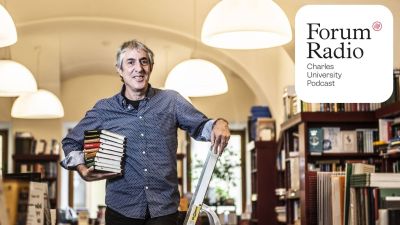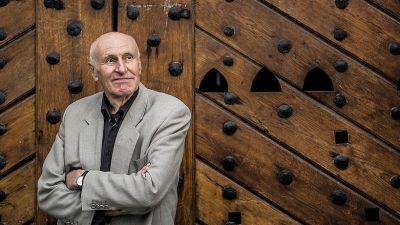Of the many institutes at Charles University, one of the most important for the school as well as for the broader public, is the Institute for Language and Preparatory Studies. It is dedicated to teaching Czech but also English to foreigners, as well as preparing international students for a smooth transition to Czech universities whether they choose to study in Czech or English. A major test, says director Dana Hůlková Nývltová, was the pandemic, followed by an influx of new students from war-torn Ukraine.
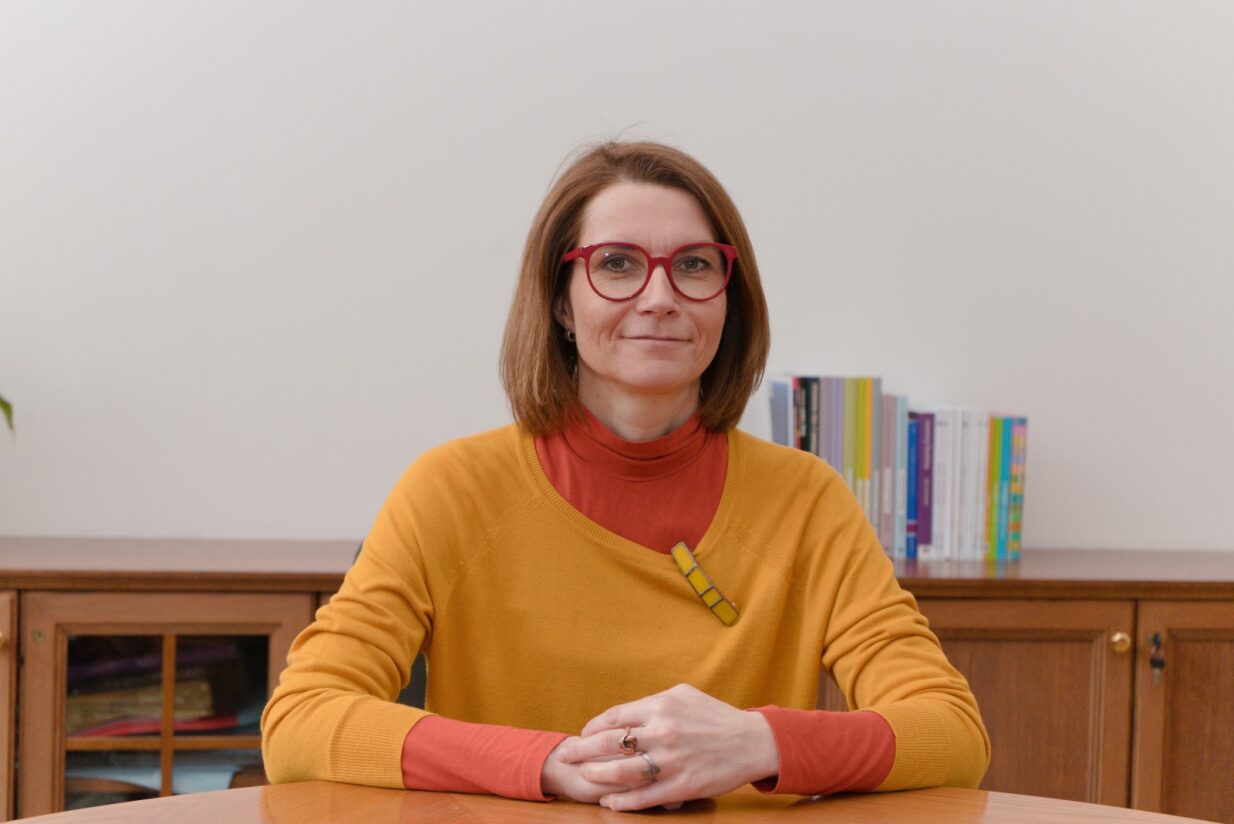
Head of the Institute for Language and Preparatory Studies Dana Hůlková Nývltová: "There are many great reasons to learn languages with us."
This year, the Institute for Language and Preparatory Studies at Charles University is marking its 50th anniversary. Is it important? Have any key events been planned?
It is important. Fifty years is a long time since ÚJOP (the acronym for the institute in Czech) officially joined Charles University and we will of course be marking the date at numerous events throughout the year, which you can see at the website. It is nevertheless important to point out, for the record, that the roots go back even further – an additional 20 years which served as a foundation for what we became. But yes: 1974 was the year that it became a part of CU and we are incorporating the anniversary into numerous events in 2024, including our annual student presentation conference and a small exhibition outlining both the history and the purpose of our institute today.
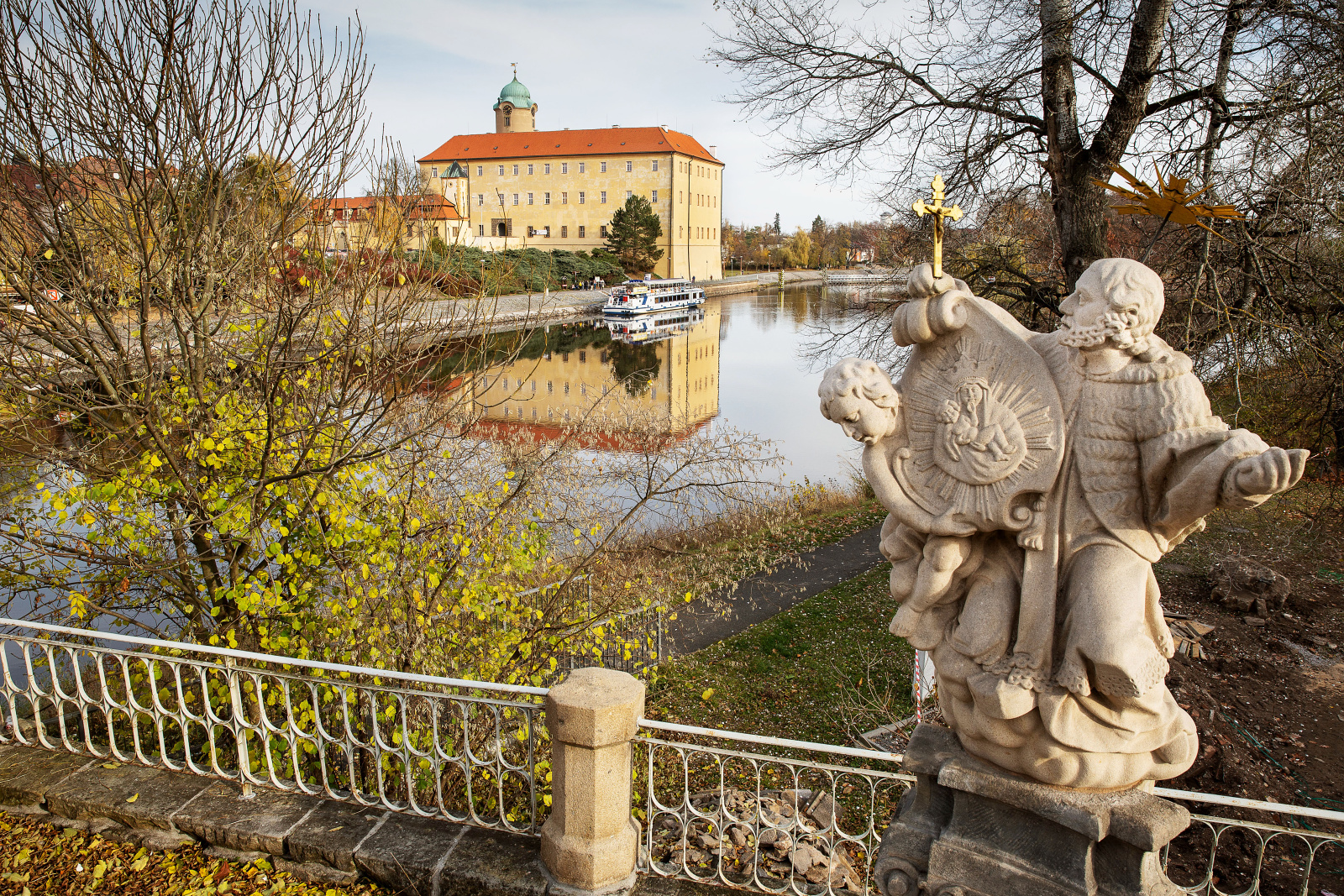
This beautiful chateau in Poděbrady, east of Prague, is used by the institute: one of several pristine or key locations for those learning Czech.
And that is really just the tip of the iceberg, isn’t it?
There is certainly more. In June, we are planning a big conference in Poděbrady called Internationalisation as a tool to support the study success of foreign students, supporting the success of international students, whether we are talking about students who learned Czech with us or took other foundational or adaptation courses. That’s a big topic for us. Our goal is to prepare students not only in languages but to go even further – to prepare them for entrance exams and acceptance to individual or specific faculties so that they don’t just begin but later successfully complete their studies. We are planning on having a panel discussion on precisely that subject.
Then, our students and ‘alumni’ then will also take part in a pre-Christmas concert late in the year, which has become a tradition. All students, whether amateur musicians or professionals, take part and it’s really special. We will also award and recognise the long-term contributions of some of our colleagues in a special ceremony. Those are the main points but not all: along with the 50th anniversary, we are also marking 15 years of certified testing of foreigners in Czech to prepare them for citizenship. And 10 years of methodological support of Czech schools in North America and 15 years of support of Česká škola bez hranic, supporting the survival of the Czech language among bilingual students abroad.
There are many options and many different angles...
That is true. But the baseline for our institute is to provide foreign students, who have bravely chosen to study abroad, all the tools they need in Czech, academic subjects and social skills to successfully complete their studies and will be completely fluent. Regardless of whether they return home or stay and live in Czechia. Over the years, we have understandably also broadened our portfolio considerably: we also provide foundation programmes in English for foreigners in fields where English is predominant to ensure that all foreign students are on the same level in language as well as academic subjects when applying at a faculty. And we also have a whole package of public courses anyone can attend.
We also have courses within the university specifically for post docs, researchers, visiting scholars, exchange students on Erasmus stays or mobility under the 4EU+ Alliance. This is to support Czech as a language within the university setting and to boost a bilingual atmosphere. After all, we can’t expect a visiting professor to speak Czech beforehand, but we want to support learning so that the domestic language is not forgotten. Last but not least, we produce and oversee certified exams and testing which are standard according to international norms, as we are members of ALTE (Association of Language Testers in Europe).
Today, we are most focused on making the transition as pleasant as possible and to limit a certain culture shock. A lot of what we do is aimed at helping our clients adapt so they can get off to the best possible start. As much as possible, we want all of our students to succeed.
If that is one side of the coin, the other is methodology. While I’m sure you have a lot of tried and tested methods in teaching, you are not resting when it comes to methods, are you?
We provide a lot of support for our language and academic teachers. Internally, we have a lot of time-tested material that we know works but that doesn’t mean we aren’t keeping up with the latest trends or aren’t tweaking or adding to our approach. We provide a lot of support for our employees in how to teach Czech and academic subjects in Czech. Outwards, we have methodological courses for teachers abroad, so if you are a teacher and you want to improve your own approach that is certainly a possibility. Focusing on methodology is hugely rewarding. Communication with teachers from all over the world is also very exciting. We mutually share or compare our experience and that can be enriching. Finally, while we are an institute within the university, our scope goes far beyond our walls and teaching centres. I already mentioned public courses, but we are also involved and provide expertise for external organisations, such as NGOs working with or caring for refugees and others. All of that experience adds up.
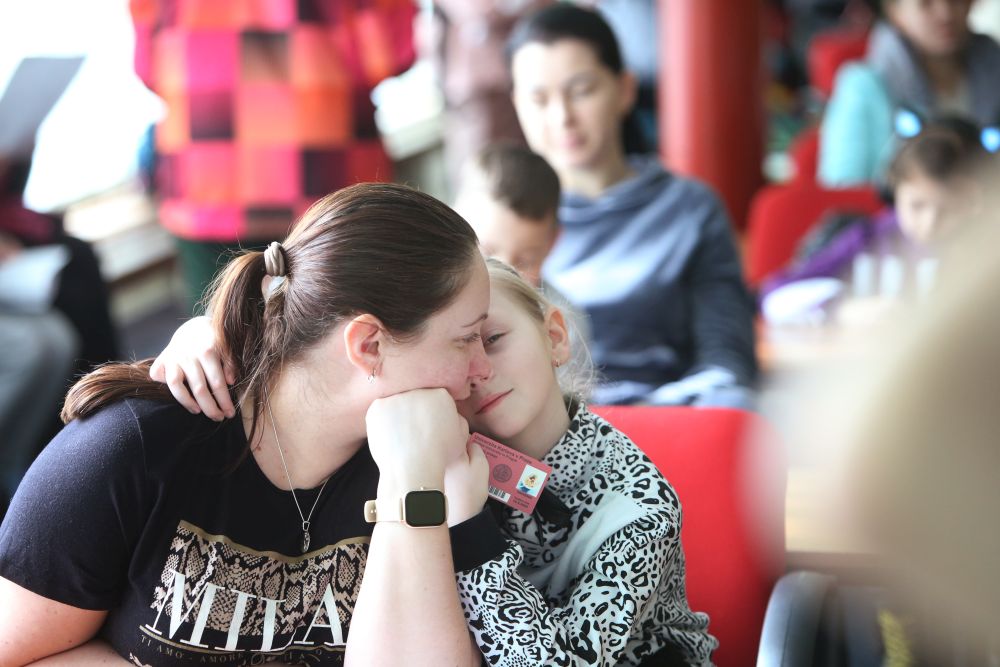
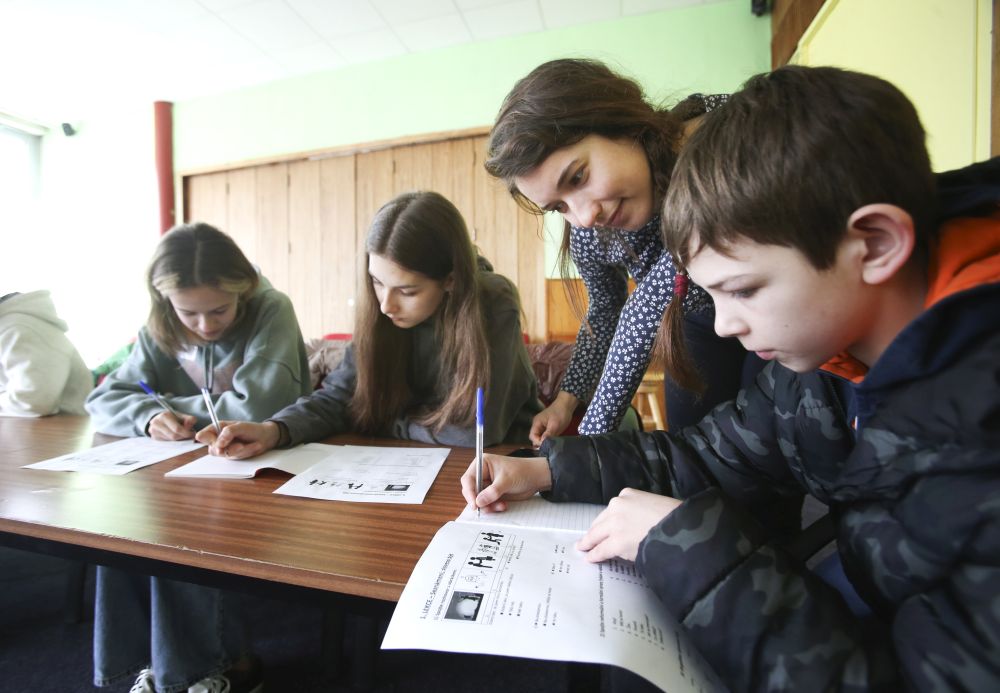
CU - and the Institute for Language and Preparatory Studies - wasted no time helping Ukrainians, which included teaching incomers Czech.
That experience – including the ability to think on your feet in crisis situations and adapt – proved especially useful in at least two circumstances I can think of: the Covid pandemic and following that, helping Ukrainians who were forced to leave their homeland, to learn Czech.
Our flexibility was tested going all the way back to Covid. We learned in mid-March 2020 that all classes were cancelled after the coming weekend and from that moment on, we changed to distance learning and holding classes online. Not as well as we know how to do today, but still we managed very quickly to get things up and running. Many institutions, by comparison, were still finding their footing that autumn. It was similar when war broke out and Ukrainians began coming to the Czech Republic. At first, we volunteered to teach crash courses in Czech to newcomers, for free.
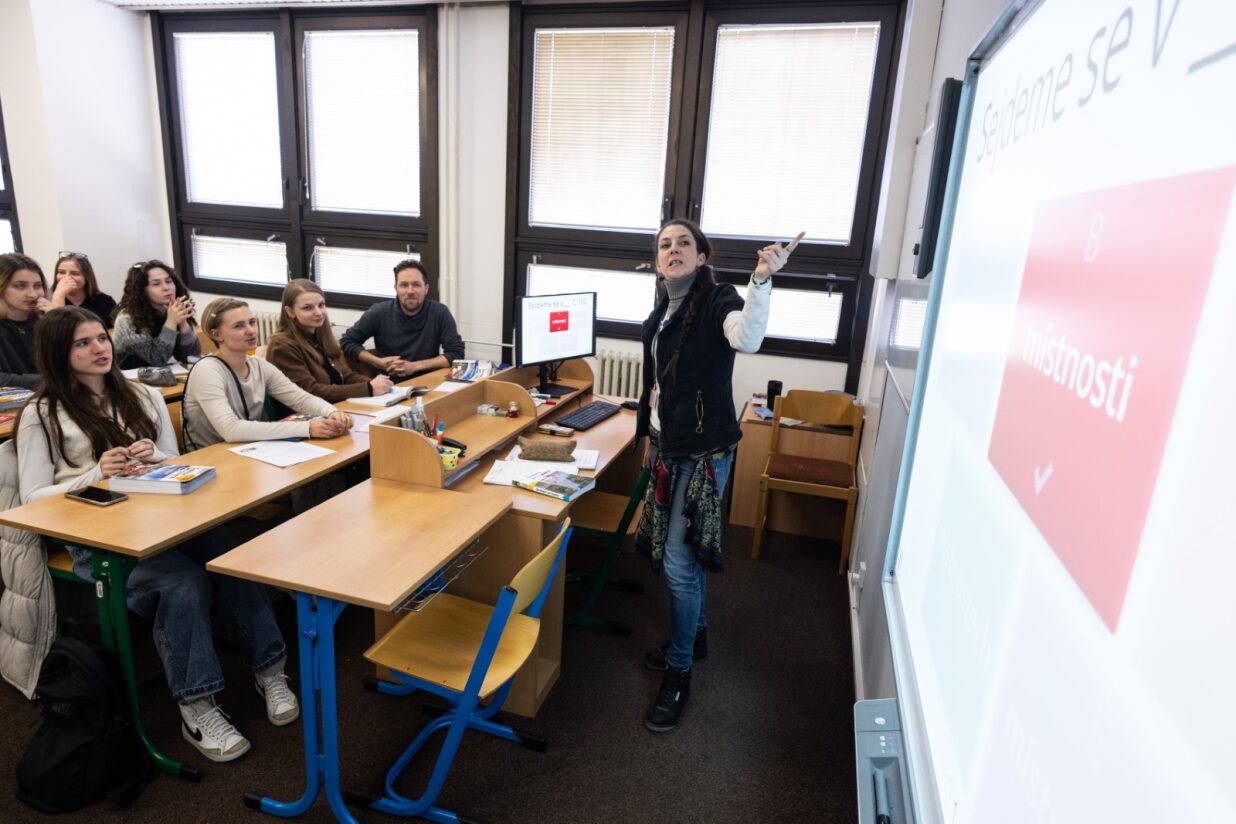
Over the years the institute has taught thousands of students Czech. Now there is a new emphasis on English and preparatory studies.
That wasn’t sustainable long-term so, in parallel, we began looking for finances to develop programmes for Ukrainians further. We succeeded and put in place public courses, received additional funding from different institutions and foundations to introduce courses for high school level learners as well as interested university applicants. At CU, we prepared courses for 300 free-movers – students from Ukraine who had successfully transferred to Charles University. We began teaching these courses around the third week of April – around just over a month after the conflict began. We were the first in the country and, by May, we were teaching nine groups in preparation for ‘extraordinary’ university entrance exams in September.
Among those taught were also med students… I remember the Faculty of Arts redoubled its efforts to put out a special textbook for them…
That’s right. The template was an earlier book, called Talking Medicine and that proved very useful. That wasn’t our initiative but we use the textbook also. I will say our vision is to work as closely across faculties as we can. We want to support university initiatives as much as possible. Med students have to speak excellent Czech because they have to be able to communicate properly with patients.
Is it easier for Ukrainians to learn Czech, given both Ukrainian and Czech are Slavic languages?
What is tricky is the initial or false impression for Slavs is that the new language will be ‘easier’ to learn. Comprehension or understanding the gist of a read text may seem easier but then there is production: actually speaking the new language is far more difficult. Learners have to get over a certain reassuring but ultimately misleading feeling that ‘this will be easy’ and keep working at it to learn the language properly. Czech may be closer, but it still requires a lot of skill and understanding and work. Even when you start to get the hang of the language there are always additional questions over everything from proper pronunciation to language etiquette: how people speak, what they can ask, what they cannot say in certain contexts, how they say something, for example in a medical setting – all of it matters. We are similar culturally but there are still some sociolinguistic differences and it is important to be aware that they exist.
How rewarding is it to help people overcome unexpected obstacles? People who had to leave their country even as the war rages on, in other words extremely difficult circumstances.
It can be powerful, not least for the teachers who get to know the students on a regular basis. We had a special ceremony for the 300 free-movers and that was emotional. For me, the purpose of our institute is to help improve peoples’ lives, whether we are talking about Ukrainians or anyone else looking for a new start in a new country. It was very important for us to help Ukrainians, especially those who were between schools: high school and university. That was a big gap and I am glad we succeeded. We helped them as a group to get ready for university. We wanted to make sure these students did not fall through the cracks and for someone who had hoped to study medicine not to end up stacking boxes in a warehouse.
You get students from all around the world and each has their own reason for studying in the Czech Republic. For some, it is more utilitarian – they need the language, full stop, while others want to study medicine, economics or engineering at Czech universities or are just fascinated with Czech and have a kind of relationship with the language. In the past, I read an interview with a Hungarian who learned Czech with you primarily because he loved the texts of songwriter/musician and legendary humourist Ivan Mládek. He is famous for songs such as Jožin z bažin (Joey from the Swamps, which was even covered by Metallica in Prague – editor’s note).
That’s right! And he’s still with us! He learned Czech and now teaches at our institute and at a language school, helping new learners learn Czech and even Hungarian. That’s a great story. The teacher even arranged for the student to meet Mr Mládek!
Teaching people from all over the world is great and we get all kinds of students, from the guy who loves riding trains and always visits Czechia by rail, to an Austrian we had who said he was learning Czech to be able to learn all about even our more obscure classical composers. Often, the reasons for learning Czech are completely different from what you would expect!
And when they finish?
At the end it can be a little emotional when a course wraps up and they get their certificate. At the same time, clients complete one course but then often continue with us at the next level. It’s important at the end to hand out the certificates, for the students it’s a sense of accomplishment, and afterwards students and teachers go for a coffee or farewell drink. We then try and keep in touch with our alumni as much as we can.
Do you still have any time to teach, given all of your responsibilities?
Not much as before but I always enjoyed it. I like this work too, luckily. I do still teach some Czech and a course in English at the Faculty of Social Sciences called Czech literature in the Central European Context. It is fascinating to get an outside view on Czech literature including texts of Franz Kafka, who wrote in German but was based in Prague, from people from places like Taiwan, Japan or Italy. They often see things in a new light or from a different angle. Their view of The Good Soldier Švejk is different, for example, from the traditional way the character is viewed and I ask them to relate topics or characters to something similar to their own literary tradition and the results are often surprising.
So 50 years on, your institute is playing a very vibrant role at CU and that has role has only increased over time.
It is and it has. It’s a strong, recognisable, and reliable ‘brand’, which includes the Institute for Language and Preparatory Studies. There is a certain weight to that. Being a part of Charles University is a privilege but also of course a big responsibility. Being part of CU means that we have to be the best. And for a long time that has meant much more than teaching Czech, for which we were long known, but for teaching foundation programmes in English to get foreign students up to speed.
| Dana Hůlková Nývltová, PhD |
| Dana Hůlková Nývltová has been the Director of the Institute for Language and Preparatory Studies at Charles University since 2020, when she was successful in the open competition. She holds a master’s degree from the University of Hradec Kralove. She also holds a PhD from Charles University, specialising in philology. In addition to Czech as a second language, she has worked on literature, gender in literature or literature written by women, and history. In 2015 she founded the Methodology Centre, which is systematically dedicated to the training and support of teachers of Czech as a second / foreign language. Her motto is: “A teacher is a leader, and a leader is a teacher, everyone has to excel at what they do best, they need a good chance to do so, and the result is the benefit of the whole.” |
| Institute for Language and Preparatory Studies (ÚJOP in Czech) |
| Established 1974; teaching Czech as foreign / second language, language for specific purposes; foundation programmes for university studies in either Czech or in English; methodology of language teaching; certified language exams. |
Looking to learn Czech or English and want to learn more? Be sure to look up the very latest here.



